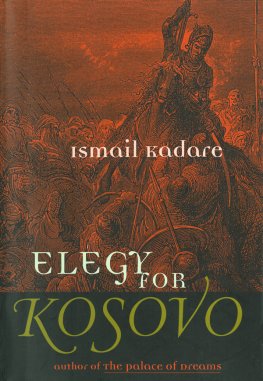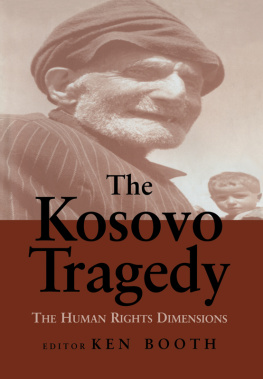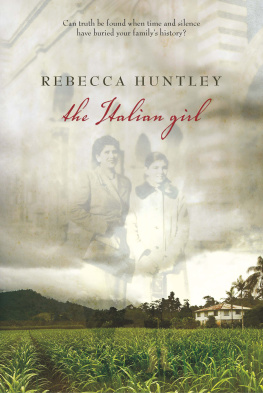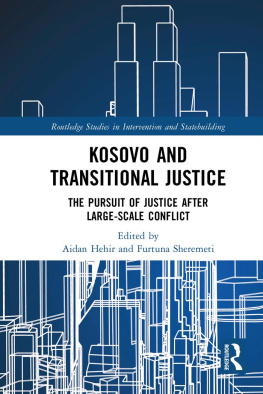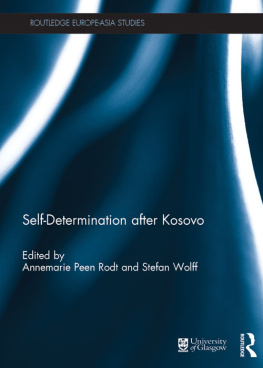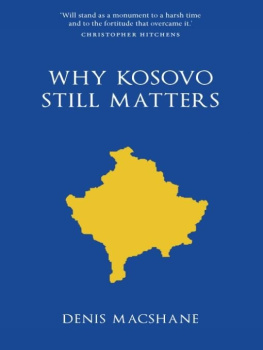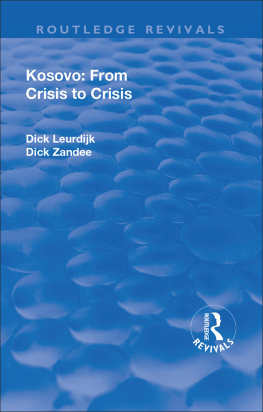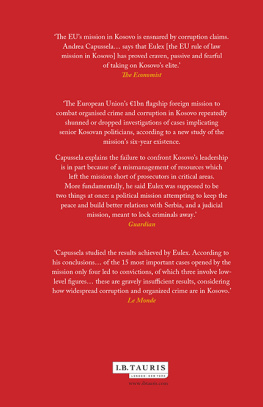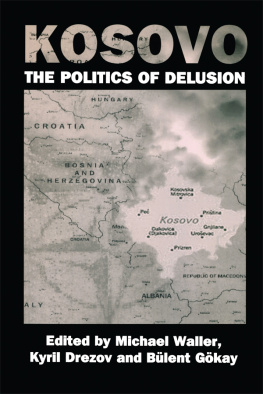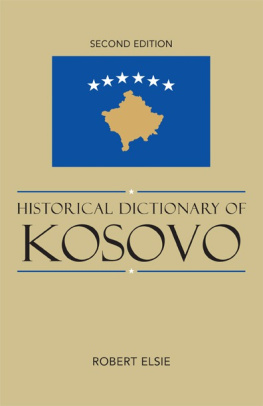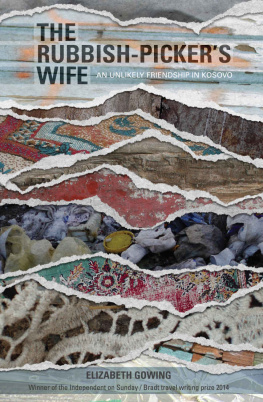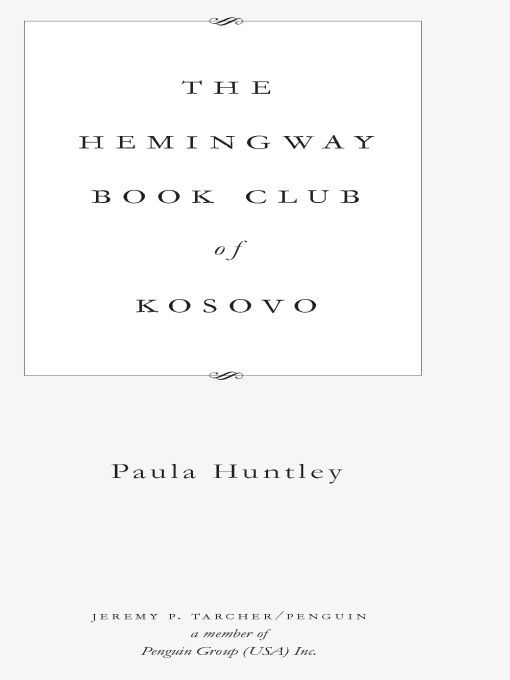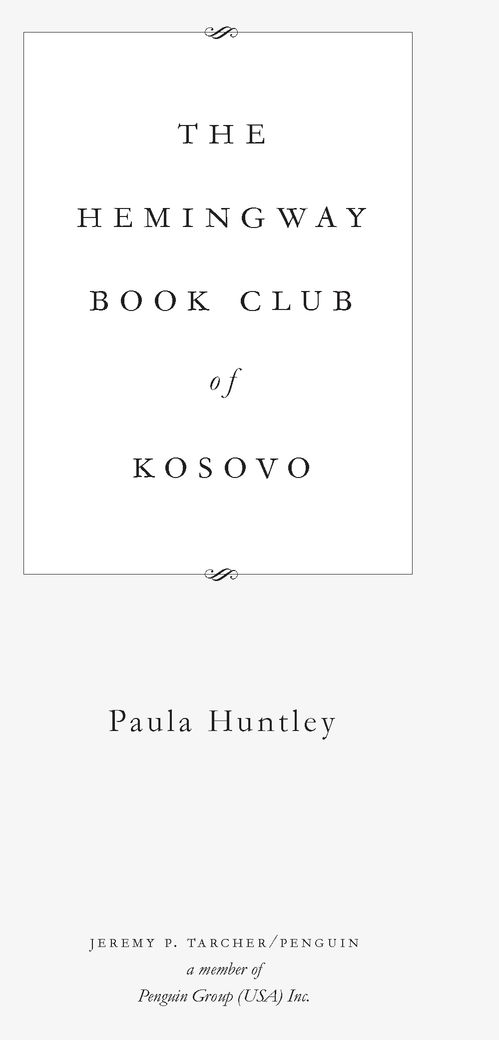Table of Contents
Paula Huntleys surprisingly affecting memoir arrives at an opportune moment; it reminds us not merely that Kosovo exists but also of the importance of that Bush-Rovian bogeyman, nation-building.... Nation-building requires not merely, not even primarily, the commitment of government resources; it also requires brave ordinary Americans like Paula Huntleyand one hopes, like some of her readers, who will perhaps be inspired by the storiesto leave the comforts of home and see the world unmediated through television cameras or journalists eyes.
The Washington Post Book World
This poignant journal shines a human light on the brave Kosovar Muslim Albanians. With insight, Paula Huntley intimately crosses the cultural divide and lovingly embraces her young students spirit of humanism, while Hemingways undefeated old man comes to symbolize their enduring hopes, and the future.TERENCE WARD, author of Searching for Hassan
The loving relationship of this American teacher to her war-scarred students will profoundly touch the hearts and minds of all readers.
MELANNE VERVEER, chair, Vital Voices Global Partnership, and former chief of staff to First Lady Hillary Clinton
This unpretentious record is an all too rare thinga memoir of the heart about a forsaken part of the world that blazed into headlines, grabbed its bloody fifteen minutes of fame, and then promptly fell off the Wests radar screen again.... What does light this book is [Huntleys] persistent faith in the power of connectedness, of nurturing the human spirit, of the obligations that we, as human beings, have to one another. Hope magazine
An inspirational account of how simple acts of humanity can change the lives of countless people. Library Journal
This heartbreaking but uplifting book holds out hope, as it presents a clear-eyed landscape of horrors. Providence Journal
Huntleys journal... reminds readers that by volunteering, people get back more than they give. Publishers Weekly
Huntleys ability to examine her own ignorance, doubts and failings is admirable, and her perception of the Kosovars current challenges as they strive toward recovery and independence is astute. Despite the painful subject, her writing offers pure enjoyment in its elegance and depth.
Pacific Sun
Coming across most forcefully here are the everyday revelations of a land, history and circumstance so different from any the author had ever known: the honor-bound blood feuds, the pervasive fear, the long memories so successfully exploited by ideologues... the remarkable instinct to survive, but also the god-awful crushing of that instinct when experiences are just too horrible to be absorbed. Kirkus Reviews
Huntley... is not a journalist by trade and never intended to publish her journal. Yet her day-by-day attempts to understand life under Milosevic provide more complete and personal information about the blood of the past than [do] most journalistic accounts. She describes her experiences living as an American volunteer in a war-torn country in a clear, strong voice, and poignantly reveals her struggle to gain her students trust and instill them with hope. Bookmarks magazine
For my husband, Ed Villmoare,
who took us to Kosovo
For my students and members of the
Hemingway Book Club of Kosova,
who taught me so much
For all the people of Kosovo/Kosova
who struggle for peace
And in memory of my beloved father,
Paul Bowlin
All of us feel this from the cradle, and know, in some sense, that all the significant movement we ever take is internal.
PICO IYER
A NOTE FROM THE AUTHOR
This is an accidental book.
My husband, Ed, and I volunteered to live and work in Kosovo after the war. He joined the effort to create a new legal system for the country while I taught English as a second language. Throughout those eight months, I kept a journal and e-mailed parts of it occasionally to friends and family. When I returned to the U.S. I found that my journal had spread through e-mail and had captured the interest and imagination of many Americans I didnt even know. Soon, to my astonishment, I had a book offer.
This journal tells the stories of the Kosovo Albanians I came to know and love during our months in that country, and in particular the students to whom I taught English. Their stories are poignant, tragic, sometimes harrowing, but always full of courage and hope. As I was talking with friends and students each day in Prishtina, I didnt realize I was interviewing them for a book, and they didnt know our conversations would wind up in print. When the possibility of publishing the journal arose, I was determined first to obtain everyones permission to share these stories.
So, in the spring of 2002, Ed and I returned to Kosovo and reunited with our new Kosovo family. In almost every instance I received not only permission, but also enthusiasm and encouragement. A few people, their memories of terror still vivid, were reluctant to have their names associated with their stories. In those cases I have changed names and identifying characteristics.
To tell such personal stories one must have extraordinary justification. My justificationwhich is also the reason these Kosovo Albanians wanted their stories toldis the hope that somehow the book will help this poor, struggling non-country.
It is also my hope that more of us Americans will become involved with the rest of the world. We need to learn about other people, learn what they think of us, try to understand, even if we dont agree with, their points of view. Everywhere in the world, I believe, from our own backyards to the middle of the Balkans, there exist people whose needs, and whose generous, responsive hearts, offer even the most ordinary Americanslike mean opportunity to serve, to connect, to expand our capacity for love.
Paula Bowlin Huntley Bolinas, California September 2002
A NOTE ABOUT PLACE NAMES AND SPELLINGS
Everyone writing about Kosovo faces the dilemma of whether to use Albanian or Serbian versions of place names. Most atlases use Serbian names. But because I learned about Kosovos towns and regions from Kosovo Albanians, I use Albanian place names in my journal. The exception is the name of the country itself, which is spelled Kosova by Albanians, but which I call Kosovo, the Serbian word, because that is the name recognized in the English-speaking world. Ironically, although the name of the book club was The Hemingway Book Club of Kosova, I felt I had to change this to Kosovo for the book title, so as not to confuse my American readers. I am sure the members of the club will understand.
PREFACE
MONDAY, OCTOBER 23, 2000 Prishtina, Kosovo
Last week I found a copy of Hemingways The Old Man and the Seaprobably the only one in the countryand had copies of it made for everyone in the class. Its the right length, the prose is simple enough for the intermediate level, and its story, I think, will resonate with these brave young people. Ill have to be alert for Hemingways macho, though. God knows this country doesnt need any more macho.
I put together from the web a logo with the name of our club, The Hemingway Book Club of Kosovo, and a wonderful drawing of a marlin. I hand it out today to much admiration, and one reservation they all share: Teacher, you have spelled it Kosovo. That is wrong. It should be Kosova. Kosova, with an a, is the Albanian form of the word, and is a political statement. The U.N. doesnt want Kosova used because it connotes independence from Serbia. But this book club belongs to these Albanian students. I will change it to Kosova.


